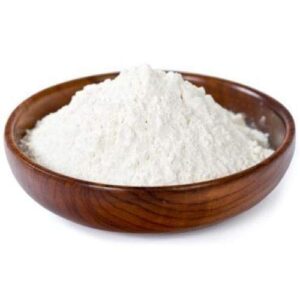
What is Maida?
Maida is a finely milled and refined wheat flour that is stripped of its bran and germ, leaving behind only the starchy endosperm. This refining process removes most of the nutrients, including fiber, vitamins, and minerals, leaving behind a white, powdery flour with a longer shelf life and smoother texture.
Why is Maida Harmful to Your Health?
- Nutrient Deficiency: The refining process used to produce maida strips away the fiber, vitamins, and minerals present in whole wheat flour. As a result, maida lacks essential nutrients and provides empty calories, leading to nutrient deficiencies over time.
- High Glycemic Index: Maida has a high glycemic index, which means it quickly raises blood sugar levels after consumption. Regular consumption of high-glycemic foods like maida can contribute to insulin resistance, diabetes, and weight gain.
- Digestive Issues: Maida is difficult to digest due to its low fiber content. Consuming foods made with maida can lead to digestive issues such as bloating, gas, constipation, and irritable bowel syndrome (IBS).
- Weight Gain: Maida is calorie-dense and lacks satiety, meaning it does not keep you feeling full for long. Excessive consumption of maida-based foods can contribute to weight gain and obesity, increasing the risk of cardiovascular diseases and other health problems.
- Increased Risk of Chronic Diseases: Studies have linked the regular consumption of refined grains like maida to an increased risk of chronic diseases such as heart disease, stroke, and certain types of cancer.
- Blood Sugar Spikes: Maida-based foods cause rapid spikes in blood sugar levels, followed by a crash, leading to fluctuations in energy levels and mood swings.
- Inflammatory Effects: Maida can promote inflammation in the body, which is linked to various health conditions, including arthritis, autoimmune diseases, and inflammatory bowel disease (IBD).

